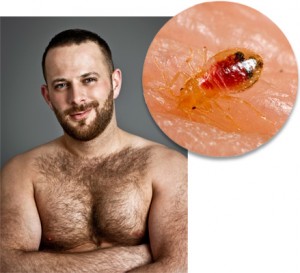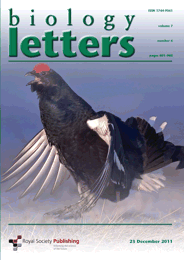
臭虫在夜晚爬上你的床铺,并在你的皮肤上匍匐前进。在将“吸管”插入你的身体开始大快朵颐之前,臭虫还不得不小心翼翼地穿过你的“体毛森林”。并且只要一步不小心,便有可能粉身碎骨。
为了搞清这一问题,即人们如何感知这么小的害虫,研究人员招募了19位拥有不同体毛数量的志愿者,并将每人一只胳膊上的体毛剃刮干净。研究人员随后要求这些受试者扭过脸去看着别处,同时将一些臭虫放到他们的胳膊上。这些受试者一感到有东西在他们的身体上爬过便会马上按下一个按钮。
结果显示,与体毛较少的人相比,那些每平方英寸生有更多毛囊,并且体毛长得更长的受试者——特别是男性——往往能够比前者提早几秒钟注意到在他们未经处理的胳膊上的臭虫。而每个受试者都需要花很长时间才能够在自己剃过毛的胳膊上发现臭虫。
研究人员推测,这或许能够解释人类为什么依然在他们的身体上生有毛发——因为我们早已不再需要用它们来保暖了。
臭虫是以吸人血和鸡、兔等动物血液为生的寄生虫。若虫的腹部背面或成虫的胸部腹面有一对半月形的臭腺,能分泌一种有特殊臭味的物质,使它“臭名远扬”。
研究人员在12月13日的《生物学快报》网络版上报告了这一研究成果。

Human fine body hair enhances ectoparasite detection
Isabelle Dean and Michael T. Siva-Jothy
Although we are relatively naked in comparison with other primates, the human body is covered in a layer of fine hair (vellus and terminal hair) at a relatively high follicular density. There are relatively few explanations for the evolutionary maintenance of this type of human hair. Here, we experimentally test the hypothesis that human fine body hair plays a defensive function against ectoparasites (bed bugs). Our results show that fine body hair enhances the detection of ectoparasites through the combined effects of (i) increasing the parasite's search time and (ii) enhancing its detection.
文献链接:https://rsbl.royalsocietypublishing.org/content/early/2011/12/08/rsbl.2011.0987








